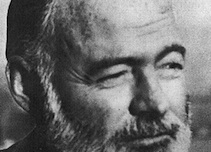 Amazon’s Kindle has always been an interesting device to me. When I first heard about it in late 2007, I was sure I wouldn’t want one. It was awkward looking and at $399, way too expensive. But when the second iteration came in 2009 with a sleeker look, I decided to buy one to see what all the fuss was about. I quickly learned to love it.
Amazon’s Kindle has always been an interesting device to me. When I first heard about it in late 2007, I was sure I wouldn’t want one. It was awkward looking and at $399, way too expensive. But when the second iteration came in 2009 with a sleeker look, I decided to buy one to see what all the fuss was about. I quickly learned to love it.
That said, I still didn’t see any real future for such a product. At $359, it was still absurdly expensive. And with all the rumors swirling about Apple’s impending tablet device, it seemed like it was a temporary niche product, at best. But on the eve of the unveiling of the third iteration of the device, Amazon CEO Jeff Bezos is making things more interesting.
Specifically, Bezos seems to understand that he cannot compete with the iPad. And he doesn’t want to. “Mr. Bezos said he intentionally left off some potential whiz-bang features from the new Kindle, like color and touch-screen controls, that would have introduced compromises to the reading experience such as glare,” the Wall Street Journal reports.
“There are going to be 100 companies making LCD [screen] tablets. Why would we want to be 101? I like building a purpose-built reading device. I think that is where we can make a real contribution,” he continues.
Whether you believe that or not, it goes against reports from last year that Amazon was trying to figure out how best to compete against more advanced tablets by offering features such as color screens. Bezos even said that they had them in the laboratory to test out. But he also said that they weren’t ready for prime time, so color Kindles were at least a few years away.
But his new statements seems to indicate that Amazon may never go in that direction with the Kindle. If their goal is just to focus on making the best reading device, why go with color and video, is his reasoning. Here’s his killer quote from the WSJ piece:
For the vast majority of books, adding video and animation is not going to be helpful. It is distracting rather than enhancing. You are not going to improve Hemingway by adding video snippets.
That’s a smart position to take — for now. From a consumer hardware perspective, Amazon was never going to be able to compete with Apple — they simple lack the experience. So instead, Amazon is going to forge ahead with this dedicated device in hopes that it will catch on with mainstream consumers before the more expensive tablets do.
Naturally, the key to all of this is the price. The new Kindle will come in two flavors: a 3G one for $189 and a WiFi one for $139. The latter price is almost a full third less than the original Kindle was. It’s also a much, much cheaper than the entry-level iPad at $499. $99 still seems like the ultimate sweet-spot for the Kindle, but it’s hard to argue with $139.
The problem here is that I’m not convinced Amazon really wanted to go that low. Remember that it was only hours after Barnes & Noble announced their Nook would be $199 (and $149 for the WiFi version) that Amazon dropped their price from $259 all the way down to $189 — exactly $10 cheaper. Undoubtedly, Amazon has lowered the costs associated with the making the Kindle over the past three years, but $399 to $189 is pretty dramatic.
Everyone felt the Kindle was far too expensive at $399 or $359 but Amazon still resisted the pressure to lower the price quickly. The reason? They had complete control of the market — they didn’t have to. It was only when the Nook, Border’s Kobo, and the iPad came out that the prices truly started to fall fast.
So the question now: is Amazon making any money on selling these devices? Some may think that doesn’t matter because they’re Amazon’s way to move their content (pretty much the anti-Apple approach). But as Bezos points out, the Kindle store and the Kindle hardware are completely separate entities within Amazon. “Internally, we view them as two stand-alone businesses that have to succeed on their own merits,” he tells WSJ. Can selling the Kindle hardware at such a low price fulfill that?
The larger problem remains for Amazon as well. While the Kindle is undoubtedly easier on the eyes than reading with the backlit iPad, the wide range of things that the iPad and other tablets can do will eventually win the day. Amazon’s price cuts have extended that day quite a bit, but it’s still inevitable.
So is Amazon content to rule the space for a couple of years while not making a lot of money on devices? Or is Bezos simply bluffing on Amazon’s future Kindle aspirations?
Also, does anyone really think Hemingway would have been pleased with his work on a Kindle?
[image via]
